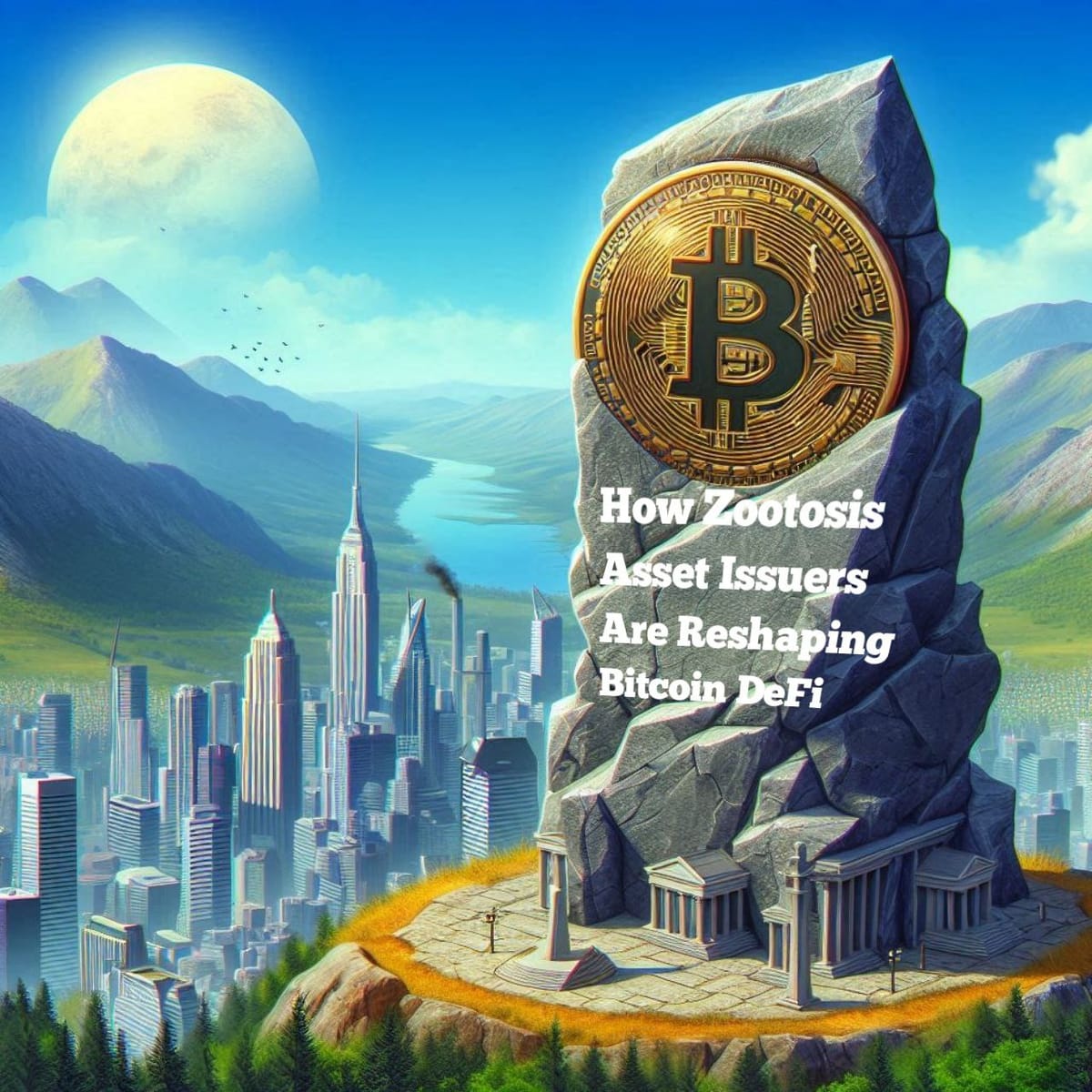StakeStone, Ethena & Lombard: How Zootosis Asset Issuers Are Reshaping Bitcoin DeFi

Mitosis as the Omnichain Liquidity Backbone for BTCfi
Introduction: The $1.5T Bitcoin Liquidity Problem
With 97% of Bitcoin's value still locked in non-productive wallets (CoinShares 2024), three protocols are pioneering Bitcoin's DeFi future:
- StakeStone: Liquid staking for Bitcoin (STONE)
- Ethena: Synthetic dollar protocol (USDe)
- Lombard: Bitcoin restaking (LBTC)
💡 The Mitosis Connection:
These assets become 10x more powerful when made omnichain through Mitosis' miAsset standard.
1. StakeStone (STONE): Bitcoin's Liquid Staking Revolution
How It Works
- Users deposit BTC → receive STONE (yield-bearing receipt)
- STONE earns yield from:
- Babylon staking
- Bitcoin L2 validators
Mitosis Integration
// Wrapping STONE as miSTONE
function mintMiSTONE(uint256 amount) external {
STONE.transferFrom(msg.sender, address(this), amount);
miSTONE.mint(msg.sender, amount); // Now usable on 12+ chains
}
Use Case:
- Deposit STONE on Ethereum → Borrow SOL on Solana at 4.2% APY
2. Ethena (USDe): The Synthetic Dollar Challenger
Key Innovation
- Delta-neutral Bitcoin-backed stablecoin
- 5.6% APY vs 1.2% for USDC
Mitosis Boost
| Metric | Native USDe | miUSDe (Mitosis) |
|---|---|---|
| Chain Coverage | 2 chains | 12+ chains |
| Yield Opportunities | 3-5% | 8-12% |
| Liquidation Risk | High | Hedged cross-chain |
Pro Strategy:
3. Lombard (LBTC): Bitcoin Restaking
The New Frontier
- Deposit BTC → mint LBTC → restake to secure:
- Bitcoin L2s (Merlin, B²)
- Oracles (Chainlink, Pyth)
Mitosis Omnichain Magic
- Restake LBTC to secure Mitosis MPC nodes
- Earn triple yields:
- Bitcoin staking rewards
- Restaking premiums
- Cross-chain liquidity mining
graph LR
A[Bitcoin] -->|Lock| B(Lombard LBTC)
B -->|Restake| C[Secure Mitosis Validators]
C --> D[Earn BTC + MITO + Chain Rewards]
Comparative Analysis
| Protocol | Asset | Native Yield | Mitosis-Enhanced Yield |
|---|---|---|---|
| StakeStone | STONE | 3.8% | 7.2% (omnichain LP) |
| Ethena | USDe | 5.6% | 9.1% (cross-chain strategies) |
| Lombard | LBTC | 4.2% | 11.4% (restaking stack) |
Data: Protocol dashboards as of June 2024
Why This Matters for Bitcoin Holders
The Old Way
- BTC sits idle → 0% yield
- Bridging risks (wBTC hacks)
The Mitosis Way
- Wrap once: BTC → miBTC
- Deploy everywhere:
- Stake as miSTONE
- Collateralize miUSDe
- Restake as miLBTC
- Earn 5-12% APY with Bitcoin-native security
Risks & Mitigations
| Risk | Mitosis Solution |
|---|---|
| Smart Contract Risk | Audited miAsset contracts |
| Bridge Reliance | Native MPC transfers (no bridges) |
| Yield Volatility | Auto-rebalancing algorithms |
🔗 Related: Mitosis Glossary - "MPC Security"
Conclusion: Bitcoin's Omnichain Future
Through Mitosis, Bitcoin finally achieves:
✅ Productive yield without custodial risk
✅ Chain-agnostic utility beyond Ethereum
✅ Institutional-grade compliance rails
"Bitcoin was always meant to be money—Mitosis makes it the world's most powerful collateral."
— MITO Core Team
Data sources: StakeStone/Ethena/Lombard docs, Mitosis BTCfi analytics



Comments ()